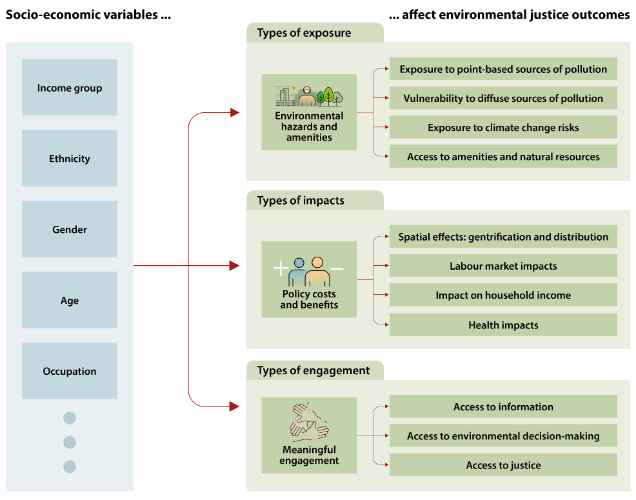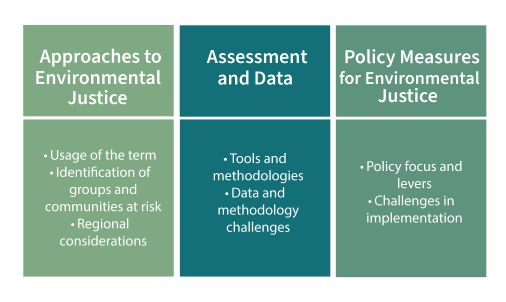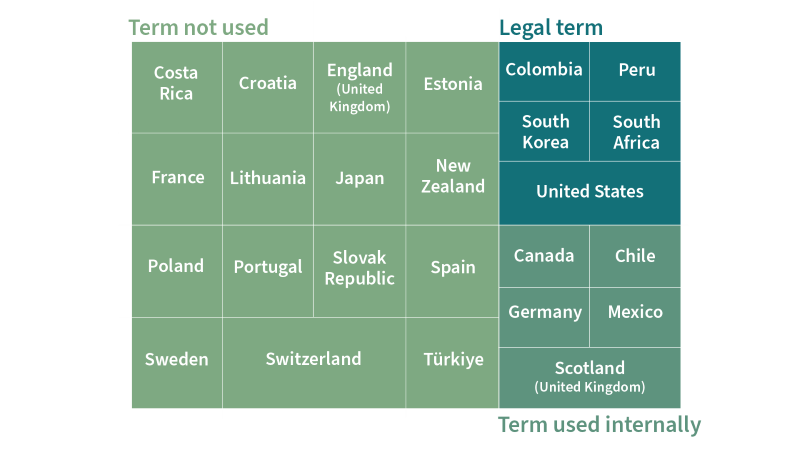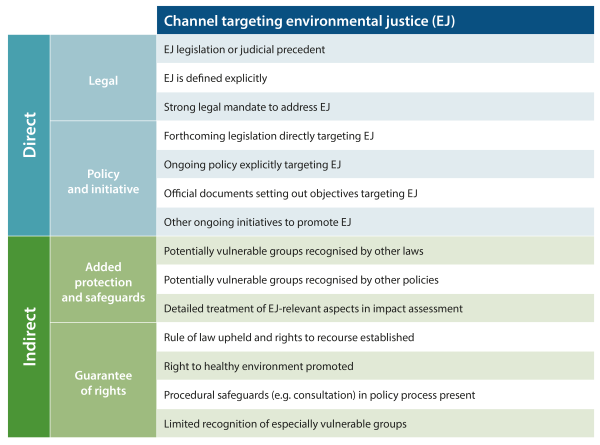OECD work on environmental justice
Read the report
Environmental Justice: Context, Challenges and National Approaches
This report examines the concept of environmental justice, its underlying conceptual pillars and how it has emerged in different contexts around the world. Additionally, the report presents the first policy stocktake of its kind, shedding light on how governments are identifying, analysing and addressing environmental justice concerns. The report is being released at the inaugural OECD Conference on Environmental Justice 28-29 May.
How do environmental justice concerns manifest?
While no universal definition of environmental justice exists, it seeks to redress an array of recurring challenges faced by various communities and groups. These challenges include disproportionate exposure to environmental hazards and the subsequent adverse health effects resulting from such exposure, unequal access to environmental amenities, and concerns about the distributional implications of environmental policies. These concerns can be further exacerbated by the lack of meaningful engagement and legal recourse for the affected communities.

How are governments identifying, assessing and addressing environmental justice concerns?
The OECD Environmental Justice Survey was conducted to identify the similarities and differences between country approaches to environmental justice. The survey which was sent out to OECD member countries, the European Commission and several non-member countries between September 2023 and February 2024. It consisted of 20 questions and focused on three key themes: (i) approaches to environmental justice, (ii) assessments and data, (iii) policy measures for environmental justice. In total, 25 countries (Canada, Chile, Colombia, Costa Rica, Croatia, Estonia, France, Germany, Japan, South Korea, Lithuania, Mexico, New Zealand, Peru, Poland, Portugal, Slovak Republic, South Africa,Spain, Sweden, Switzerland, Türkiye, United Kingdom (where separate responses were received from England and Scotland) and United States) and the European Commission provided responses to the Survey.

How is the term "environmental justice" used?
Despite the ubiquity of environmental justice across contexts, the use of the term “environmental justice” is relatively uncommon among national administrations. Ten of the 25 countries surveyed used the term environmental justice; of these, four used the term internally (Chile, Germany, Mexico, Scotland), four considered environmental justice in pre-existing legislation (South Africa, South Korea, Peru, United States), one had a definition derived from the judiciary (Colombia), and another had an environmental justice bill pending enactment (Canada).

How are countries addressing environmental justice priorities?
Countries deploy different approaches to advance environmental justice. Direct approaches to environmental justice can entail executive orders or legislation (the United States and South Korea),judicial precedent (Colombia), or policies and initiatives (Germany). Meanwhile, indirect approaches often ground environmental justice in guaranteeing rights such as to the enjoyment of a healthy environment (Croatia) and providing additional protection to vulnerable groups through anti-discrimination law or detailed impact assessments (the United Kingdom).

How can countries better assess and address environmental justice concerns?
Countries can draw lessons from:
- Screening tools and methodologies, developed in different countries. By overlaying environmental and socioeconomic data at national and local levels, policymakers can better identify communities and groups at risk.
- Innovative approaches undertaken to target vulnerable communities. Culturally-informed approaches to community consultations can ensure meaningful engagement of the most affected groups.
- Synergistic applications of policy levers to consider environmental justice concerns. Broad-based considerations – including spatial planning, transport and health policies – can advance more equitable policy design.
What types of policies are being used to advance environmental justice?
Public policies are an essential ingredient to addressing and repairing environmental inequities. The survey revealed that most countries have policy measures that seek to reduce barriers to participation in environmental decision-making. However, less than half of countries surveyed have policy measures in place to reduce inequitable burden of economic costs of environmental policy. This is an important oversight that warrants attention. Without thoughtful considerations of pre-existing vulnerabilities, otherwise desirable – and increasingly necessary – environmental policy can stretch the fabric of society as countries engage in the transition to more environmentally sustainable economies.



